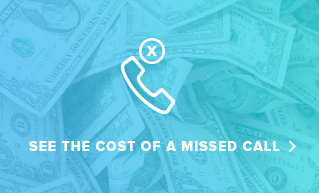
In the sales world, performance is everything. If your team isn’t performing consistently, you won’t be on track to hit your collective goals. The first step is gathering the right tools, resources, and partners. If you’re looking to increase sales, improve customer relationships, and make your buyer’s journey more efficient, try these tips on for size:
Sell Yourself First
Your brand is a product in itself. Like any other product, you’ve got to demonstrate value before you can actually sell goods or services. Before anyone is willing to buy from you or your organization, they have to buy into the idea that you’re worth working with. Just like a job candidate marketing themselves as the ideal fit for a position, your first priority must always be selling yourself and your brand.
Thankfully, selling yourself isn’t an impossible challenge. There are many ways to position your brand as appealing to your ideal customer. A quality first impression, for instance, can go a long way in proving your worth to callers. One of the best ways to increase sales is to partner with answering services for small businesses. Such a partnership can ensure that your phones are answered by polite, professional receptionists every time they ring. Even if a caller is just dialing in to ask a question or inquire about your offerings, their first impression of your business can be enough to convince them to take a chance on your organization.
By selling yourself first and foremost, you show that you’re not concerned about money. Instead, your priority is to educate consumers about your brand’s core message. When you lead with passion, sales growth is inevitable.
Let Your Customer be the Hero
Every story needs a hero, and what is a buyer’s journey if not a story? It might seem logical to position yourself as a member of your customers’ tribe. Words like “we” implies that the buyer and the provider are in it together. But consumers are more inclined to take action and make a purchase when they’re positioned as the main character of their own story – not merely a side character in yours.
The next time you’re working to boost sales, think of yourself as a wise old mentor to the customer’s hero character. You’re there to understand their problems, offer new insight, provide a plan of action, and inspire them to take that action. Armed with the confidence they need to carry out the plan, customers will be more inclined to actually make a purchase.
While it might sound counterintuitive, a simple switch from “we” phrasing to “you” phrasing can make all the difference in the buyer’s journey. You-phrasing encourages prospects to question the status quo while simultaneously pitching an achievable outcome. This type of messaging also holds the attention of your prospect in a unique way, helping you to stand out from the competition.
Prioritize Response Times
There’s a direct correlation between customer responsiveness and the responsiveness of sales representatives. In highly competitive markets, customers can’t be expected to wait around for their calls or emails to be returned. A voicemail machine alone is often enough to inspire prospective customers to hang up and dial the competition instead. We live in a 24 hour world, and if you’re not ready to respond to inquiries around the clock, you could be missing out on valuable opportunities.
There’s nothing worse for a growing sales organization to do than not follow up on inbound leads. While this might sound like common sense, our best phone sales tips start and end with increased availability. Showing up is half the battle – by closely monitoring lead response times and actively promoting follow-up conversations amongst your sales team, you’re sure to see sales growth in no time.
Make Your Sales Reps Experts on the Product
The best salespeople sell what they know. With thorough knowledge of products and services offered by their organization, sales reps can answer any question asked of them. These experts should also be ready to speak on the benefits of a particular product and know how to cater to the precise needs of a prospect. All of this helps to foster connection and build trust between your brand and the consumer.
If you’re eager to learn how to get more sales, start by reflecting on the product knowledge training you’re offering your team. Many sales managers focus their training efforts on the features of their products or services, but this strategy isn’t enough. Features might attract buyers initially, but benefits are what truly drive sales. Present your product knowledge training through the eyes of your customers. Show your reps how to identify customer needs and how your solution uniquely benefits them.
It’s also worth spending some time getting to know the competition. While knowing your own product from the inside out is a great start, understanding the competition can help to differentiate your sales pitch from theirs. Looking for an easy way to start your research? Read up on customer reviews of your product as well as your competitor’s. This can help you and your sales team members understand which features are popular and which warrant further attention. Reading reviews can also help you speak in the same language as your customers while developing your sales pitch.
Ditch the Pitch
As professionals, salespeople are often fighting an uphill battle against stereotypes and client expectations. Even the mere mention of a sales pitch can leave a sour taste in the mouth of your customers and prospective clients. That’s because too often, salespeople speak at their audience, not with them. It’s one of the least effective forms of communication, so it’s not surprising that these pitches often fail.
If you’re eager to learn how to get more sales, start by ditching your typical sales pitch. Instead, turn your client communications into back and forth conversations. A quality pitch should involve questions and answers. Salespeople should listen just as much as they speak – if not more.
The 80/20 rule is a good starting point. 80 percent of the content shared within a sales conversation should be customized to specific customer pain points. The other 20 percent should center around your organization and the benefits you offer. By offering solutions to the problems of prospective clients, you cut around the cheesy pitch to offer valuable tools and resources just in the nick of time.
You can take the 80/20 principle even further by encouraging your sales team to listen the majority of the time they’re engaging with prospective leads. 80 percent of the conversation should be spent asking questions, answering inquiries, and listening to what the person has to say about their needs. The remaining 20 percent of the time can be more traditionally focused on the sale itself.
Save Time with Outsourced Partners
Missed connections can cost your business big time. That’s why so many organizations are opting to partner with answering services to help boost their sales strategy. By making sure all calls are answered in a timely, professional manner, businesses can cover their bases and ensure valuable calls aren’t dropped or left unattended. This can help build up your client base and take care of your most valuable prospects. It isn’t hard to increase sales with a professional answering service on your side to help qualify prospects and even schedule appointments.
Sales growth is a natural byproduct of the increased efficiency that comes with such a partnership. Even a few wasted seconds can lead to serious productivity issues when scaled across thousands of inbound calls. Organizations that work to eliminate inefficiency are best positioned for long-term success. An experienced virtual receptionist can guide callers through their options, preventing confusion and crossed wires. These conversations streamline the buyer’s journey and greatly reduce the odds of sales mistakes.
Try MAP Communications Today for Free
At MAP Communications, we’ve spent three decades working with salespeople to qualify leads, follow up on inquiries, and address client questions and concerns. In that time, we’ve built quite the reputation for quality and success. No matter your industry, our virtual receptionists and call center agents can help you build the ideal customer experience.
If you’re eager to learn more about how an answering service can help your sales team close more business, request more information today. In especially competitive landscapes, a professional, 24/7 call service can do wonders to increase business and close deals. Anyone seeking to save money while maintaining a reputation for excellent customer experiences should consider trying out our seven-day free trial.
Here are some related articles you might be interested in:
The Do’s and Don’ts of Business Phone Etiquette
Understanding Customer Needs: What Do Clients Want & Expect from a Business



